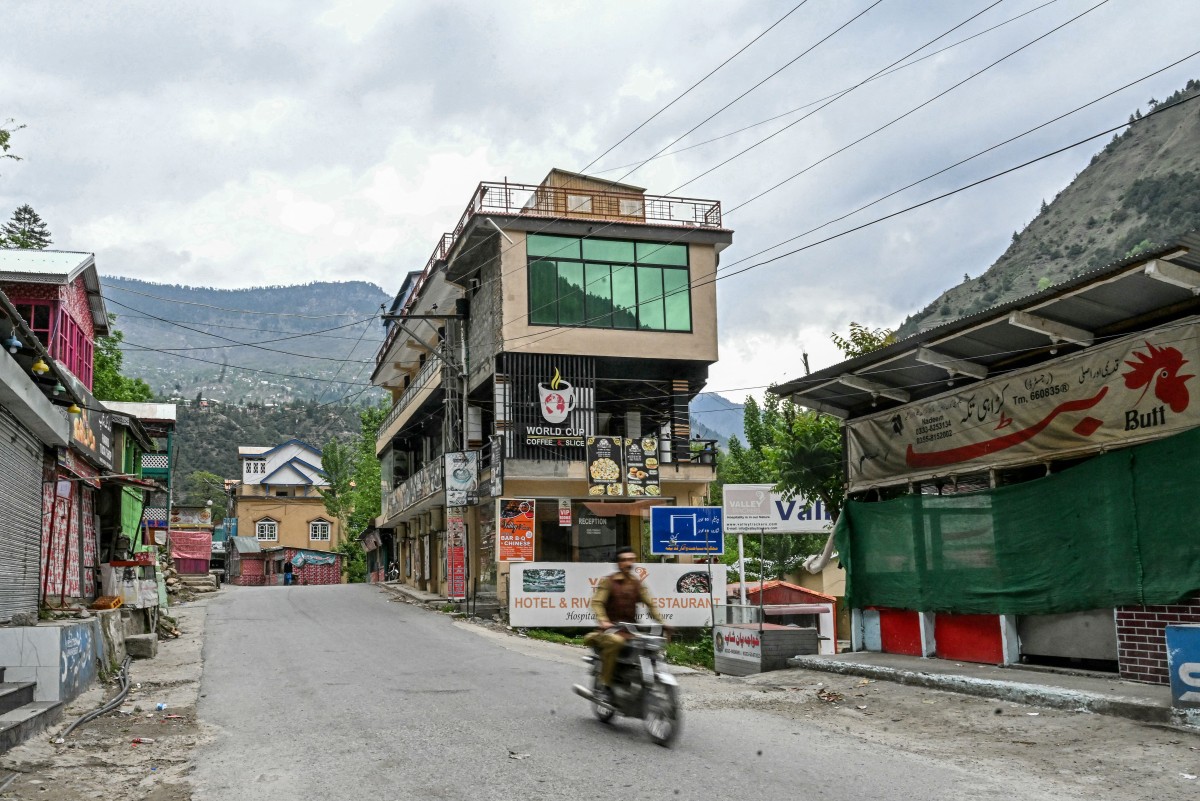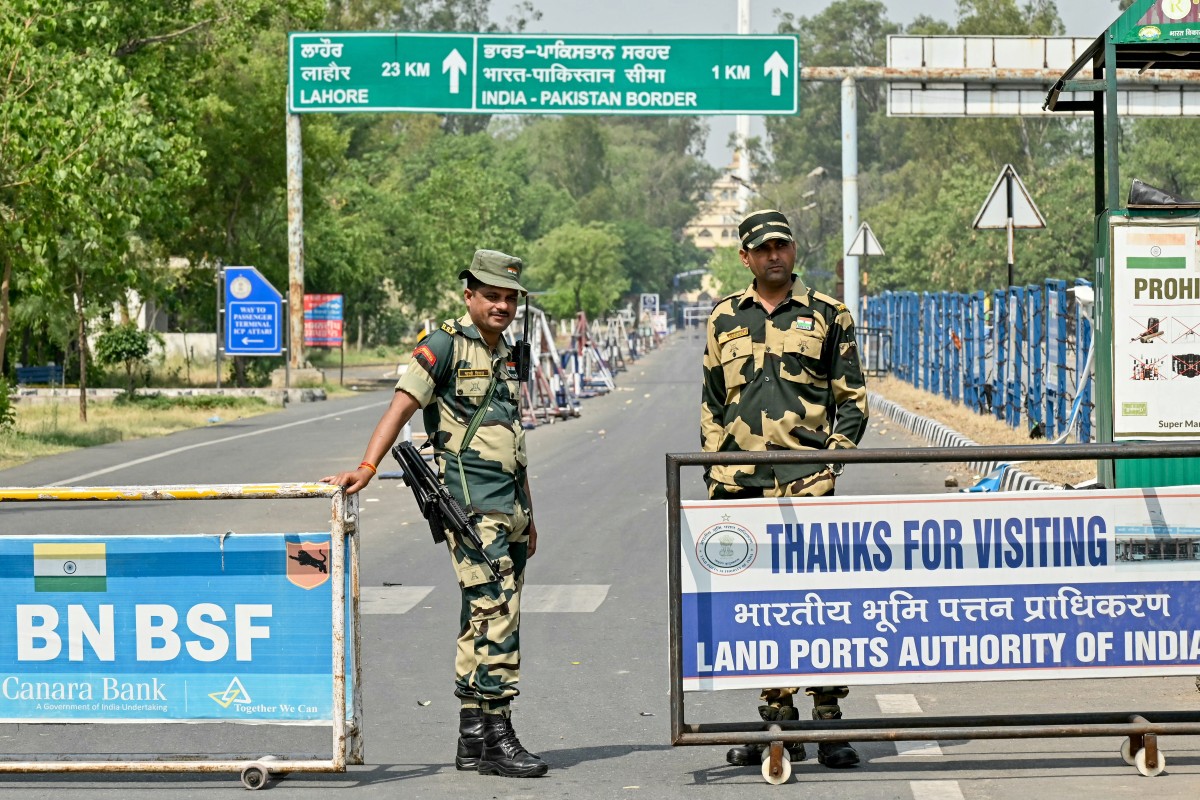
By Agence France-Presse
Hotels are empty and roads are deserted at the start of what is normally peak tourist season amidst the towering peaks and lush valleys of Pakistan’s Kashmir Valley, as the threat of attack from India looms.
Tensions between the nuclear-armed archrivals have soared since India accused Pakistan of backing a shooting that killed 26 civilians on the Indian side of the disputed territory on April 22.
Indian Prime Minister Narendra Modi gave his military “full operational freedom” to respond, while earlier this week, Islamabad warned they had “credible intelligence” that India was planning imminent strikes.
High season in the cooler climes of the Neelum Valley, the tourist center of Pakistan-administered Kashmir, begins in May as temperatures around the rest of the country rise.
“It’s been a really bad start,” said Muhammad Awais, a 22-year-old photographer at a popular picnic spot.
Tourism is the Neelum Valley’s lifeline, drawing over 300,000 visitors each year from all over Pakistan, according to the district administration. Much of the local population depends on roughly 350 guesthouses, which employ thousands of families.
“Our livelihoods depend on tourism, and without it, we suffer. The way things are unfolding is very slow, and it’s affecting our work badly,” Awais told AFP.
This week, police and soldiers at army checkpoints barred tourists from entering the valley, allowing only local residents through the checkpoint. Tourists were instead told to return to the main town of Muzaffarabad.
“It’s extremely disappointing that the government did not warn us or advise against visiting,” said Saleem Uddin Siddique, who traveled from the capital, Islamabad, with his family.
“Our hopes are now dashed,” the 69-year-old retired accountant said.

‘We don’t want war’
Islamabad has denied any involvement in last month’s attack at Pahalgam and the uneasy neighbors have issued a raft of tit-for-tat punitive diplomatic measures.
The two South Asian nations have exchanged gunfire for nine consecutive nights along the militarized Line of Control, the de facto border, according to Indian defense sources.
On Saturday, May 3, Pakistan’s military said it tested a surface-to-surface missile system with a range of 450 kilometers (280 miles) aimed at “ensuring the operational readiness of troops.”
International pressure has been piled on both New Delhi and Islamabad to settle their differences through talks. India and Pakistan, which both claim Muslim-majority Kashmir in full, have fought several wars over the Himalayan territory since the end of British rule in 1947.
On India’s heavily fortified border, residents of farming villages along the Chenab River have sent families back from the frontier, recalling the terror of the last major conflict between the rival armies in 1999.
There has been an exodus of tourists on the Indian side of the border too since the attack, which targeted Hindu men enjoying the open meadows with their families.
Indian authorities have heavily promoted the region as a holiday destination, both for skiing in winter and to escape the sweltering heat of the summer.
The regional government of Pakistan‑administered Kashmir has ordered religious schools to close and urged residents to stockpile food. However, some tourists continued to arrive undeterred.
“We don’t think the threat of possible war is serious,” said Mudasar Maqsood, a 39‑year‑old factory worker from the eastern city of Kasur, over 630 kilometers away, who was blocked along with his friends from entering the valley.
“We should not disrupt our routine life,” he added.
Raja Iftikhar Khan, the president of a private tourism association, said the situation could become “extremely dire”.
“This disruption has been devastating for all those tied to tourism. We don’t want war—no sensible businessperson ever does,” Khan said.
